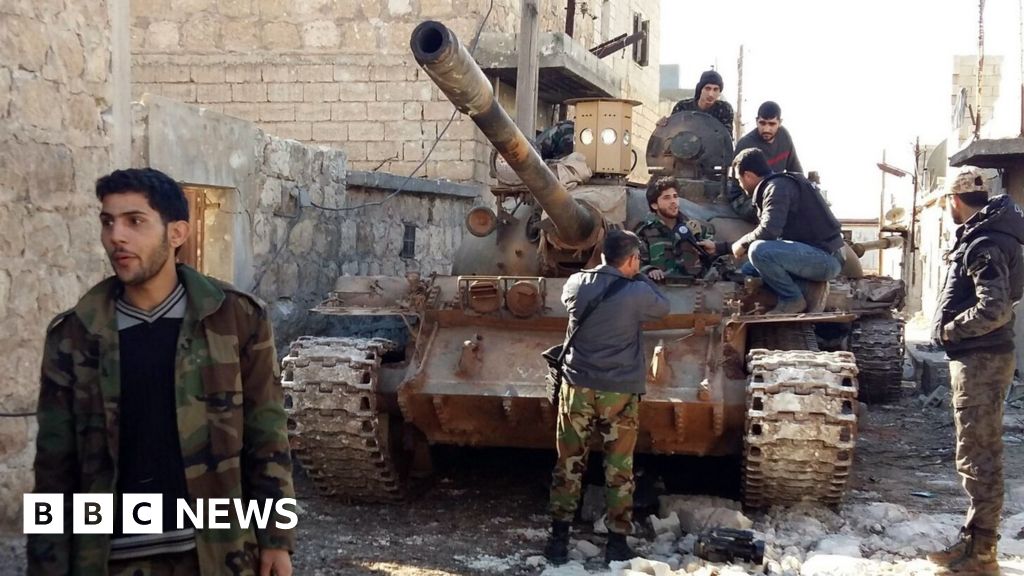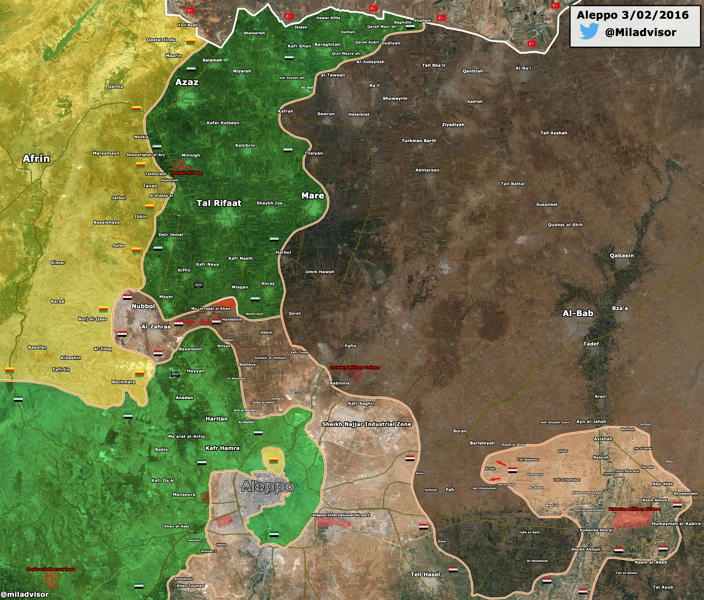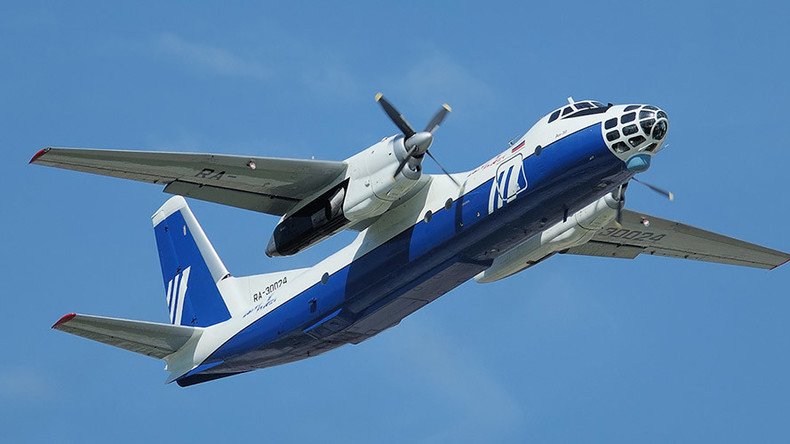Re: Regional geopolitics
Syria conflict: Aleppo offensive threatens peace talks
BBC
A Syrian government offensive on rebel-held areas around Aleppo is threatening to derail UN efforts to persuade the warring parties to start peace talks.
Rebels said the new assault, backed by heavy Russian air strikes, was unprecedented and that the divided northern city might soon be encircled.
The UN special envoy declared on Monday that the talks in Geneva had begun.
But government and opposition officials contradicted Staffan de Mistura on Tuesday, as the fighting escalated.
Mr de Mistura acknowledged on Tuesday evening that the collapse of the talks was possible during what he described as "the preparatory phase".
Displaced Syrians struggle to survive
"The level of trust is close to zero between the two sides," he told the BBC.
"A ceasefire for me is essential. In fact it is the test that shows the talks are successful," he added, urging Russia and the US to help bring it about.
In an interview with the BBC, UN Secretary General Ban Ki-moon urged the international community to show the same unity of purpose and political commitment to resolving the conflict in Syria as it had with the Iranian nuclear issue.
"We have seen the power of diplomacy in the case of the Iranian nuclear deal. Can we not do the same way?" he asked.
More than 250,000 people have died in almost five years of war in Syria.
Eleven million others have fled their homes as forces loyal to President Bashar al-Assad and those opposed to his rule battle each other, as well as jihadist militants from so-called Islamic State (IS).
'Concrete changes'
Activists said the assault north-west of Aleppo was the first major government offensive there since Russia launched an air campaign in support of Mr Assad in September.
Protesters carry signs during a demonstration in Aleppo against Russian air strikes and an offensive by government forces (2 February 2016)Image copyrightReuters
Image caption
The Syrian opposition wants air strikes on civilians to end before starting negotiations
UN headquarters at Palais des Nations in Geneva (2 February 2016)Image copyrightEPA
Image caption
The talks in Geneva are part of a peace process outlined by a UN Security Council resolution
A Syrian army colonel told the AFP news agency that it planned to break a long-running rebel siege of two pro-government Shia villages, Nubul and Zahraa, and also to cut a rebel supply route from Turkey to opposition-held parts of Aleppo.
The Syrian Observatory for Human Rights reported that Russian warplanes had carried out more than 320 air strikes in the area since Monday morning.
At least 18 civilians, including three children and two emergency workers, were killed in the raids on Tuesday, the UK-based monitoring group said.
"The regime's and Russia's actions gravely threaten the political process," said Farah Atassi, a member of the opposition High Negotiations Committee.
Syria conflict: Aleppo offensive threatens peace talks
BBC
A Syrian government offensive on rebel-held areas around Aleppo is threatening to derail UN efforts to persuade the warring parties to start peace talks.
Rebels said the new assault, backed by heavy Russian air strikes, was unprecedented and that the divided northern city might soon be encircled.
The UN special envoy declared on Monday that the talks in Geneva had begun.
But government and opposition officials contradicted Staffan de Mistura on Tuesday, as the fighting escalated.
Mr de Mistura acknowledged on Tuesday evening that the collapse of the talks was possible during what he described as "the preparatory phase".
Displaced Syrians struggle to survive
"The level of trust is close to zero between the two sides," he told the BBC.
"A ceasefire for me is essential. In fact it is the test that shows the talks are successful," he added, urging Russia and the US to help bring it about.
In an interview with the BBC, UN Secretary General Ban Ki-moon urged the international community to show the same unity of purpose and political commitment to resolving the conflict in Syria as it had with the Iranian nuclear issue.
"We have seen the power of diplomacy in the case of the Iranian nuclear deal. Can we not do the same way?" he asked.
More than 250,000 people have died in almost five years of war in Syria.
Eleven million others have fled their homes as forces loyal to President Bashar al-Assad and those opposed to his rule battle each other, as well as jihadist militants from so-called Islamic State (IS).
'Concrete changes'
Activists said the assault north-west of Aleppo was the first major government offensive there since Russia launched an air campaign in support of Mr Assad in September.
Protesters carry signs during a demonstration in Aleppo against Russian air strikes and an offensive by government forces (2 February 2016)Image copyrightReuters
Image caption
The Syrian opposition wants air strikes on civilians to end before starting negotiations
UN headquarters at Palais des Nations in Geneva (2 February 2016)Image copyrightEPA
Image caption
The talks in Geneva are part of a peace process outlined by a UN Security Council resolution
A Syrian army colonel told the AFP news agency that it planned to break a long-running rebel siege of two pro-government Shia villages, Nubul and Zahraa, and also to cut a rebel supply route from Turkey to opposition-held parts of Aleppo.
The Syrian Observatory for Human Rights reported that Russian warplanes had carried out more than 320 air strikes in the area since Monday morning.
At least 18 civilians, including three children and two emergency workers, were killed in the raids on Tuesday, the UK-based monitoring group said.
"The regime's and Russia's actions gravely threaten the political process," said Farah Atassi, a member of the opposition High Negotiations Committee.














Comment